
With Azerbaijan’s blockade of the Lachin Corridor continuing, food and medical supplies in Nagorno-Karabakh are running out. The dwindling supplies have led some to warn that the region is entering the worst phase so far of the nine-month blockade.
Larisa, 69, moved to Nagorno-Karabakh’s capital of Stepanakert following the Second Nagorno-Karabakh War in 2020, after Azerbaijan took control of Togh, her village in Hadrut region.
‘I have seen a lot of suffering’, Larisa tells OC Media. ‘My 18-year-old son died during the first Karabakh war; my brother went missing’.
‘I was left alone in this world’, she says. ‘The neighbours gave me a TV, but it also broke, I was left unaware of everything’.
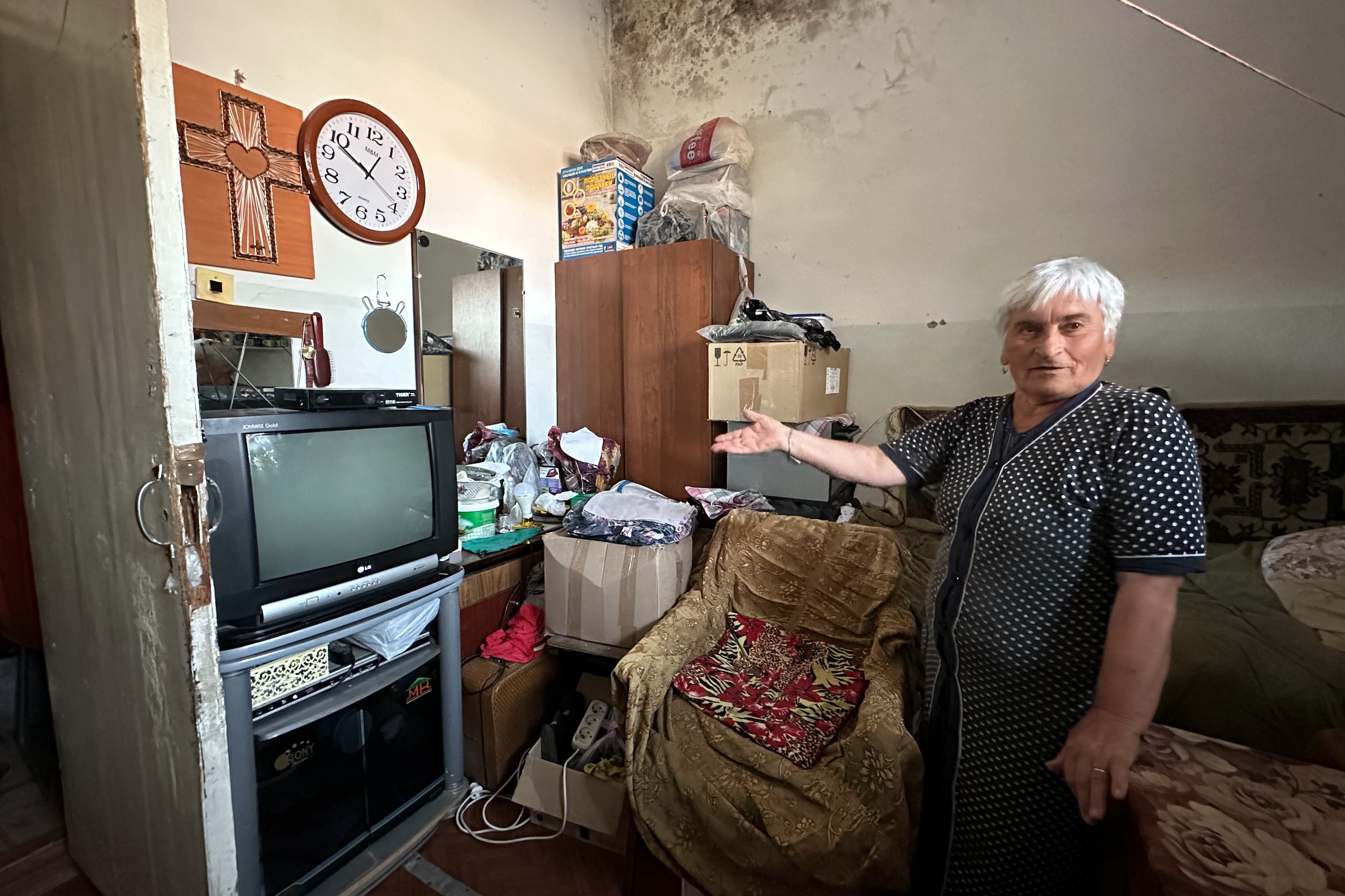
Now, as Azerbaijan blocks the sole road connecting Nagorno-Karabakh to Armenia, from where the vast majority of supplies used to reach the region, Larisa’s situation has worsened further.
‘I was in line for bread until seven in the morning; people were pushing each other, arguing, fighting’, she says. ‘It’s so unbearable that I’d rather starve than stand there all night’.
With her age and worsening health condition, she struggles to stand in line for bread, which she says is ‘all that’s left’ in the region.
‘I want to go to my village. I will live with an Azerbaijani, an Armenian, or a Russian’, says Larisa says, recalling Togh. ‘It doesn’t matter who [controls] the village, I just want to be home. I don’t want to live in this damp basement’.
‘I had everything’.
Days waiting in line
While the region’s agricultural lands produce limited amounts of food and vegetables, the lack of fuel and consequent suspension of public transport have cut connections between settlements, making distribution of agricultural products to towns nearly impossible. As a result, most shops and supermarkets in Stepanakert have been closed for months.
Whenever bread does appear in shops, queues of hundreds of people swiftly form, with many standing in line for an entire day in the hope of being able to buy a loaf.
‘I returned from the bread line at four in the morning’, says Anna Sargsyan, a single mother of two living in Stepanakert. ‘I was standing there all night with a little baby in my arms’.
‘You can see my fridge; it’s empty’, she says. ‘All I have is bread and a few boiled potatoes. That’s what I feed my two toddlers with’.
‘I don’t even have money’, says Anna. She says that they have run out of medicine too, although both she and her children need medication.
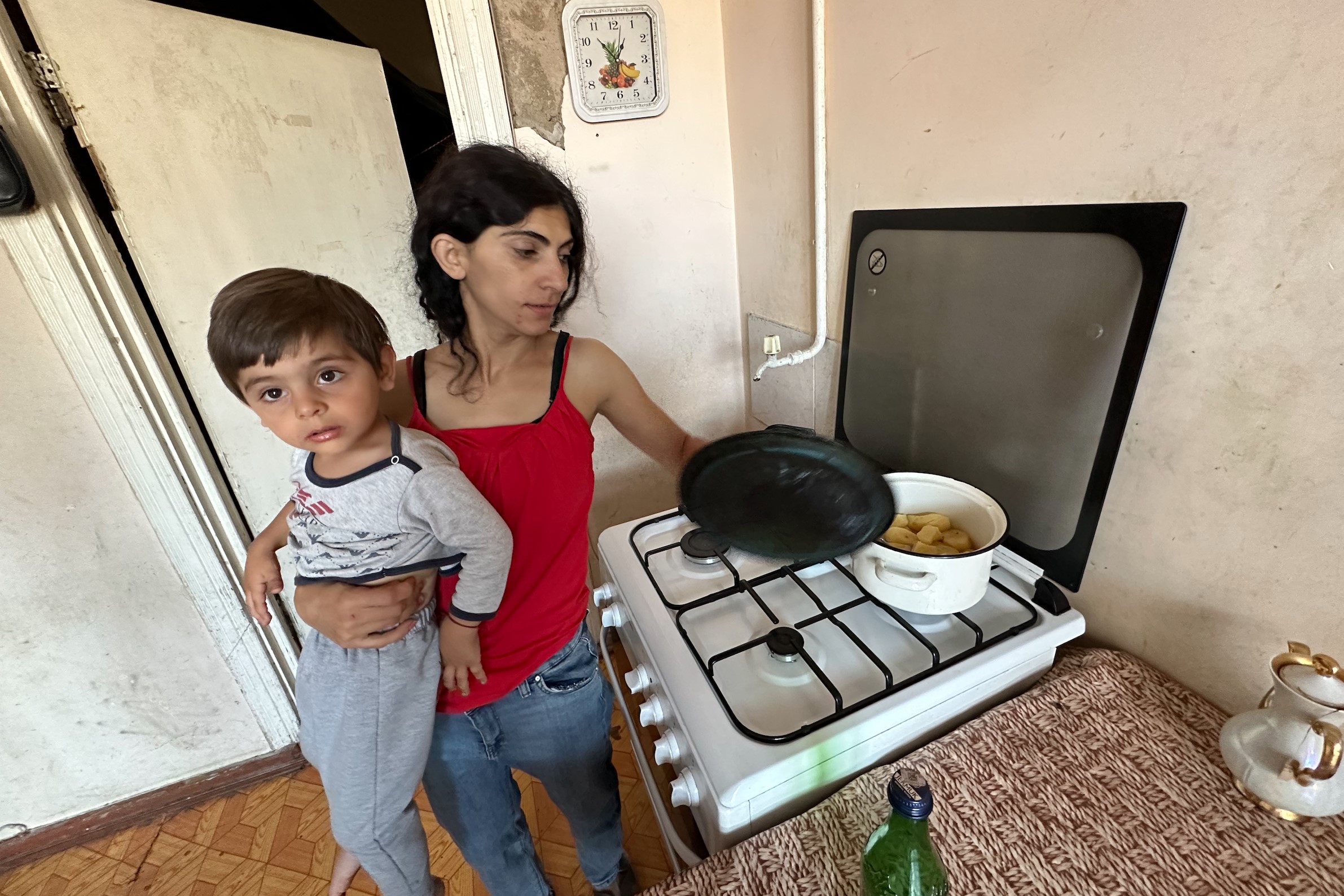
Alongside food, fuel, and medicine shortages, the region has also faced water shortages as a result of a summer heatwave. This resulted directly in shortages of water for household use, but also exacerbated existing shortages of electricity.
Electricity supplies from Armenia have been suspended since early January, following damage to electrical cables supplying the region with electricity. Nagorno-Karabakh’s largest water reservoir has been reaching dangerously low levels, as a result of both increasing demand for hydroelectric power and the summer heatwave, potentially jeopardising its ability to supply electricity in the winter.
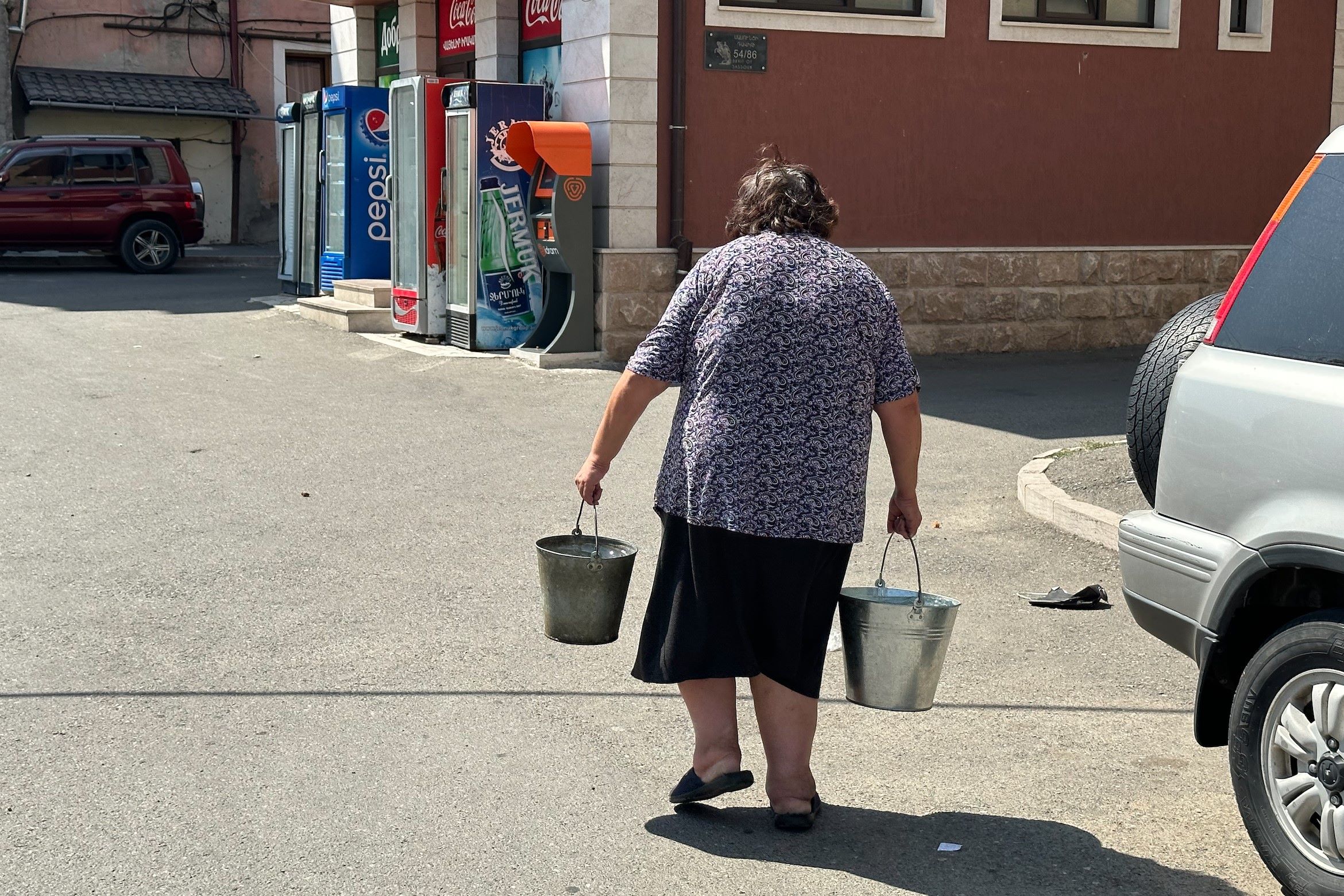
Nagorno-Karabakh’s population, estimated to be around 120,000, last received a delivery of humanitarian aid by Russian peacekeeping forces on 15 June. Since then, no food or medicine has entered the region, as Azerbaijani border forces blocked deliveries by both peacekeeping forces and the Red Cross.
The Armenian government’s attempt to send humanitarian aid to Nagorno-Karabakh in July through the Lachin corridor failed, leaving the lorries standing near the corridor’s entrance in Armenia’s Syunik region for over a month.
Last reserves running out
Russian peacekeepers and the Red Cross, the only suppliers of humanitarian aid to the region since last December, were banned from using the Lachin Corridor in mid-June following a clash between Armenian and Azerbaijani forces.
While limited access was later restored, with the Red Cross able to transport patients to Armenia for urgent medical procedures, both bodies are still unable to deliver supplies to the region.
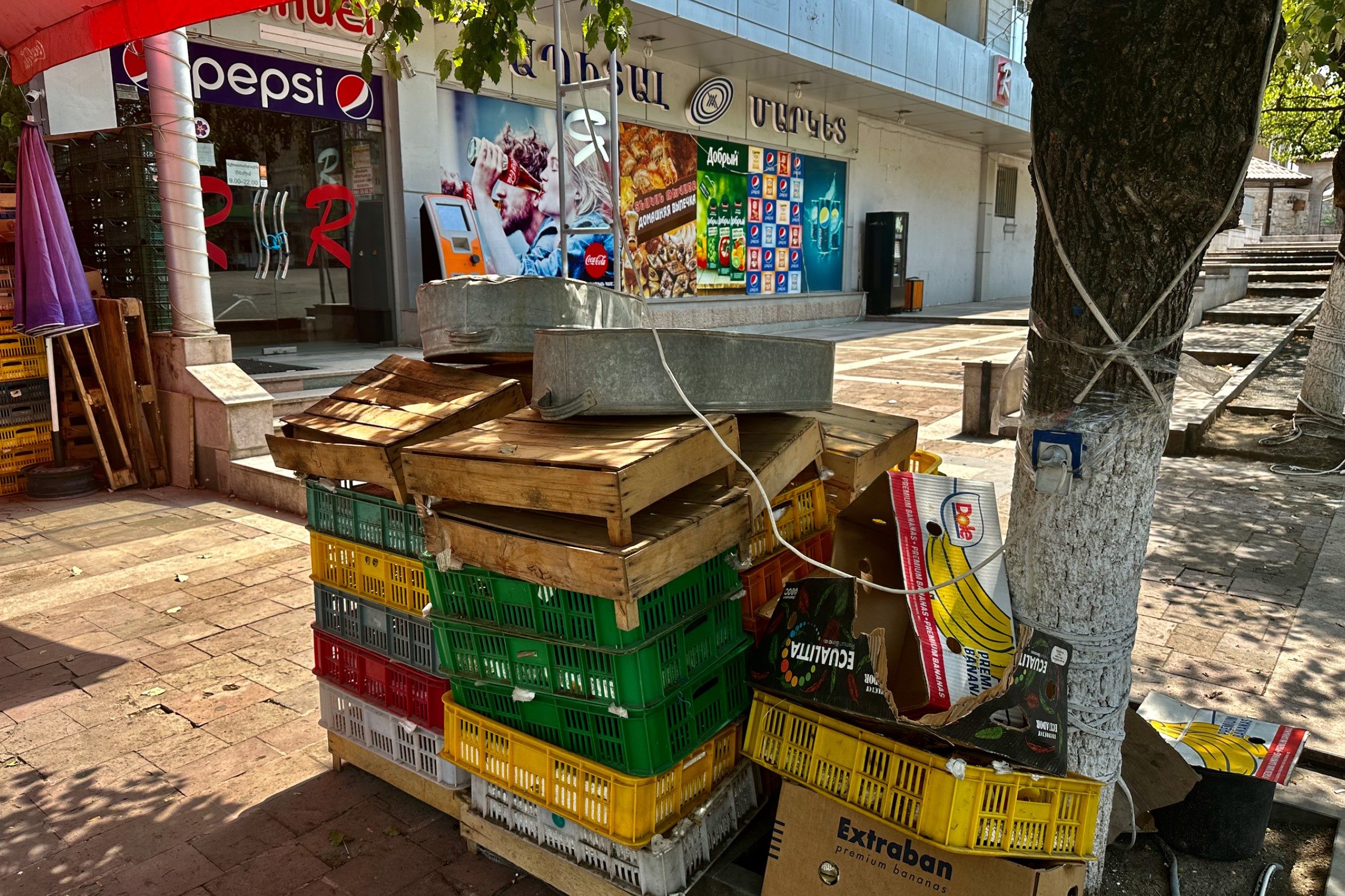
Eteri Musayelyan, a representative of the Red Cross in Nagorno-Karabakh, told OC Media that it was currently not possible to deliver food or medicines to Nagorno-Karabakh.
Musayelyan added that the Red Cross had distributed almost 10,000 packages of humanitarian aid since December, but that the organisation had last brought medicine into the region on 7 July.
On 27 August, the authorities in Stepanakert warned that state reserves of wheat and flour would soon run out, and called on people growing wheat to contact the Ministry of Agriculture, which would buy supplies for distribution.
‘We urge you all not to remain indifferent, to demonstrate unity and compassion and to sell your wheat reserves to help our compatriots living in the capital’, the ministry’s statement said.
A week later, Nagorno Karabakh’s state information service announced that bread would be provided to residents of the region only in exchange for vouchers, with people required to bring IDs and public service numbers to collect a ration of 200g of bread per person.
A 25 August report by Nagorno-Karabakh’s Human Rights Defender on the bread shortage, which it states puts the region’s population at ‘undeniable risk of malnutrition and starvation, states that the government was able to meet the demand for bread of 50%–60% of the population as a result of steps taken to mitigate the shortage.
The report also claims that Azerbaijani troops’ targeting of agricultural land and civilians working there caused issues with harvesting wheat. However, it underscores that the main issue is the obstruction of imports from Armenia; prior to the Lachin Corridor’s blockade in December 2022, Nagorno-Karabakh received over 65% of its flour from Armenia.
The report adds that a number of flour mills and factories producing bread have suspended their activity due to fuel and electricity shortages, and bakeries are unable to bake an amount of bread corresponding to demand.
And the results are being seen and felt, increasingly severely.
On 15 August, Nagorno-Karabakh’s authorities reported that a 40-year-old man died of starvation in Stepanakert. According to the region’s Ministry of Health and state hospitals, miscarriages have more than doubled since the blockade began, with people with chronic diseases most at risk as a result of malnutrition and medicine shortages.
[Read more: First death from starvation reported in blockade-struck Nagorno-Karabakh]
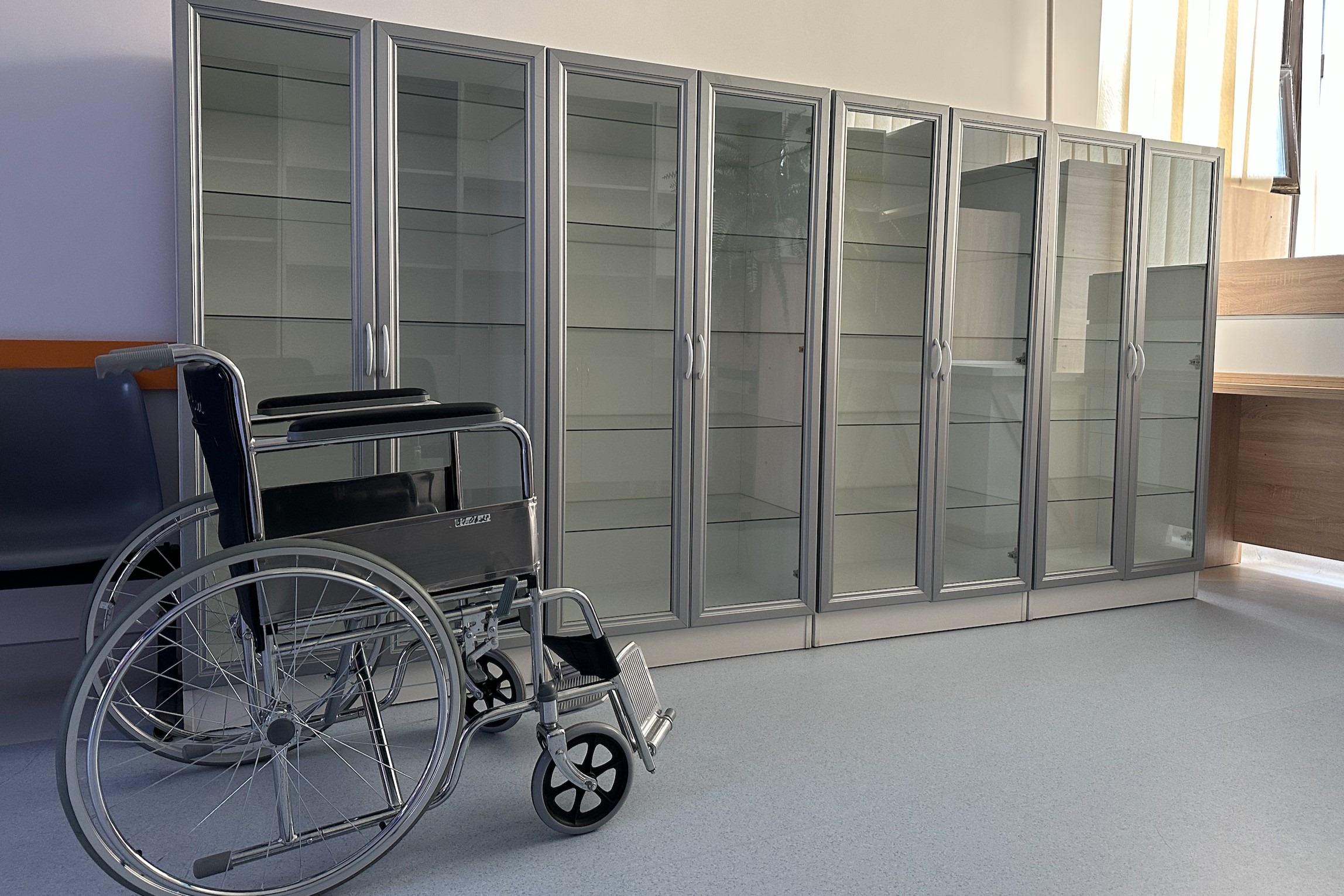
Despite calls from Western countries and the International Court of Justice ordering Azerbaijan to lift the blockade, international warnings of a growing humanitarian emergency have been repeatedly dismissed by Azerbaijani officials.
A 7 August statement by Azerbaijan’s Foreign Ministry accused UN special rapporteurs and experts of ‘getting deceived by the manipulations of Armenia and issuing biased statements’.
A Washington Post article stated that American officials believed that Armenians in Nagorno-Karabakh were managing to survive only due to ‘backyard gardens and other home produced food’, putting them at risk of starvation ‘within two months’ as winter approached.
Baku has increasingly firmly called for Nagorno-Karabakh to receive humanitarian aid sent from Azerbaijan via the Aghdam road, and attempted to deliver 40 tonnes of humanitarian aid on 30 August while blocking French and Armenian aid convoys.
[Read more: Azerbaijan blocks French convoy from reaching Nagorno-Karabakh, sends its own]
Both Armenian and Nagorno-Karabakh officials have rejected the proposition, which is seen as an attempt to completely sever ties between Nagorno-Karabakh and Armenia.
The day after Azerbaijan’s aid convoy reached the line of contact, Nagorno-Karabakh’s parliamentary speaker, Davit Ishkhanyan, stated that Stepanakert had decided to ‘keep that road closed’.
Azerbaijan’s President Aliyev has, however, repeatedly stated that the Lachin Corridor might be reopened only on the condition that traffic is allowed to pass along the Aghdam road.
For ease of reading, we choose not to use qualifiers such as ‘de facto’, ‘unrecognised’, or ‘partially recognised’ when discussing institutions or political positions within Abkhazia, Nagorno-Karabakh, and South Ossetia. This does not imply a position on their status.






